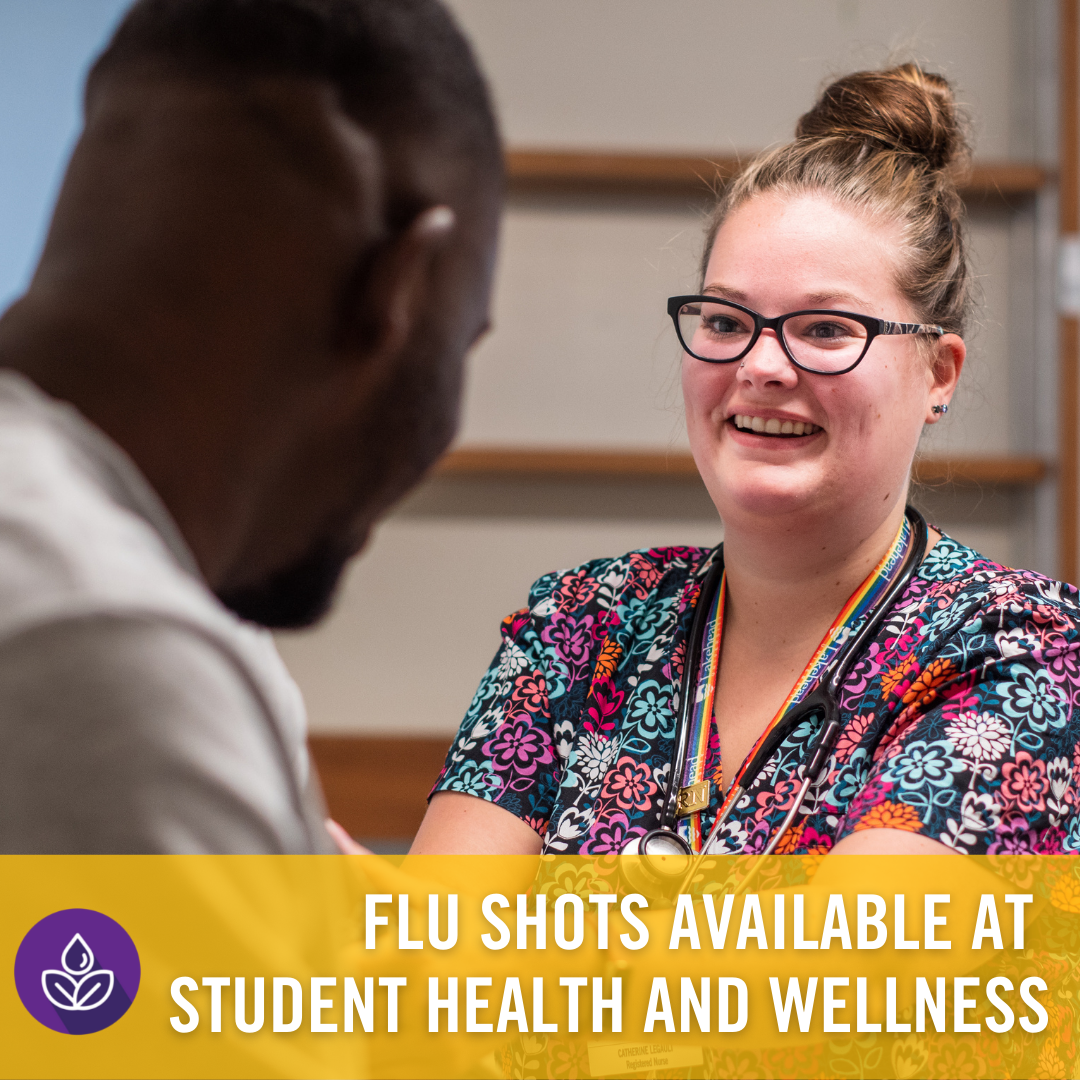Flu Shot FAQ- 2021
Flu season is upon us and we are answering some of the commonly asked questions about the flu shot.
Who should get a flu shot?
Everyone 6 months and older should get a flu vaccine every season with rare exceptions. Flu vaccination has important benefits: It can reduce flu illnesses, doctors’ visits, and missed work and school due to flu, as well as prevent flu-related hospitalizations and deaths. Getting vaccinated yourself may also protect people around you, including those who are more vulnerable to serious flu illness, like babies and young children, older people, and people with certain chronic health conditions.
Where can I get the flu shot?
In Thunder Bay, students, staff, and faculty can get a flu shot at Student Health and Wellness starting October 25. Call 807-343-8361 or email flu.shots@lakeheadu.ca to book an appointment.
In Orillia, anyone can get the flu shot at a local pharmacy, eligibility for the general public begins early November. Appointments are necessary at most locations. Call or visit the websites below to book an appointment at any of the pharmacies close to campus.
Costco: 625 University Ave. 705-418-1706 or book online.
Food Basics: 975 W Ridge Blvd. 705-326-5200 or book online.
Walmart: 175 Murphy Rd. 705-325-7403 or book online.
Shoppers Drug Mart*: Walk-ins available. 149 Westmount Dr. N. 705-326-7373. Check availability here.
In Ontario, people with provincial health cards are able to get the vaccines from pharmacies, family doctors and public health clinics.
International students or people without health cards
In Thunder Bay
Flu shots will be available from Shopper's Drug Mart Pharmacies, the Thunder Bay District Health Unit or Superior EMS.
In Orillia
The Bell Farm Road clinic will provide vaccinations by appointment only. CALL TELE-CLINIC 705-722-1199 or book online.
The last time I got a flu shot, I got sick.
Flu vaccines cannot cause flu illness. Flu shots are made with either inactivated (killed) viruses, or with only a single protein from the flu virus. There are several reasons why someone might get flu symptoms, even after they have been vaccinated against the flu.
Some people can become ill from other respiratory viruses besides flu such as rhinoviruses, which are associated with the common cold, cause symptoms similar to flu, and also spread and cause illness during the flu season. The flu vaccine only protects against the flu, not other illnesses.
While you do start to develop antibodies right away, it takes the body two weeks after the flu shot to develop full immune protection. It is possible that a person might have been exposed to a flu virus shortly before getting vaccinated or during that two-week period and that this exposure might have resulted in developing the flu before protection takes effect. That’s why it is important to get your flu shot early on.
Some people may experience flu symptoms despite getting vaccinated is that they may have been exposed to a flu virus that is very different from the viruses the vaccine is designed to protect against. The ability of a flu vaccine to protect a person depends largely on the similarity or “match” between the viruses selected to make the vaccine and those spreading and causing illness. There are many different flu viruses that spread and cause illness among people
The final explanation for experiencing flu symptoms after vaccination is that flu vaccines vary in how well they work and some people who get vaccinated still get sick. When that happens though, vaccination has been shown in several studies to reduce the severity of illness in those people who get vaccinated but still get sick.
How else can I prevent the spread of the flu?
In addition to getting the flu shot, people can adopt some simple practices (that might sound very familiar) to keep themselves and others healthy:
Covering coughs and sneezes
Avoid touching your eyes, nose, and mouth
Wash your hands often
Stay home if you are feeling unwell
Practice other healthy habits
Avoid close contact with people who are sick.
Get plenty of sleep.
Eat well, with lots of vegetables and fruits.
Drink lots of fluids.
Exercise regularly.
Manage your stress.
Sources
https://www.cdc.gov/flu/prevent/misconceptions.htm




